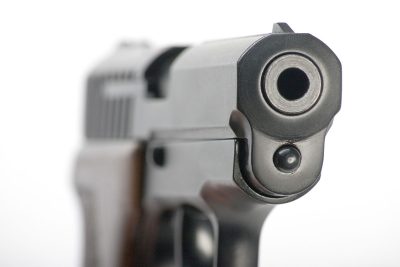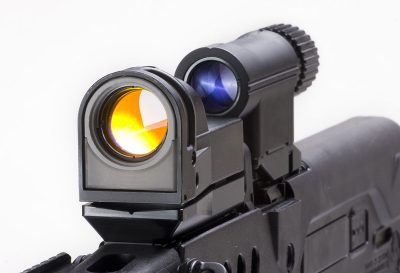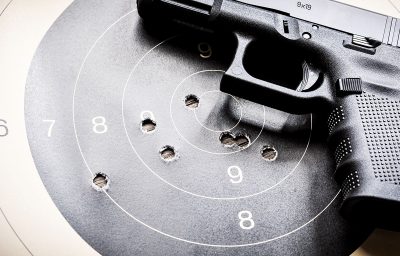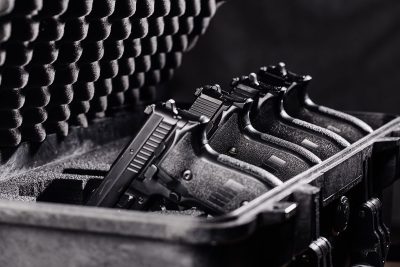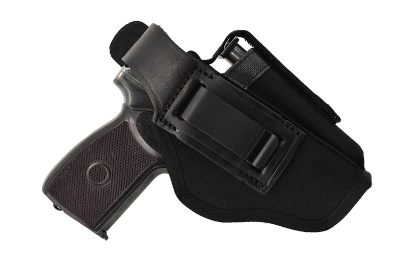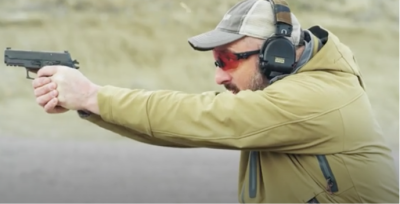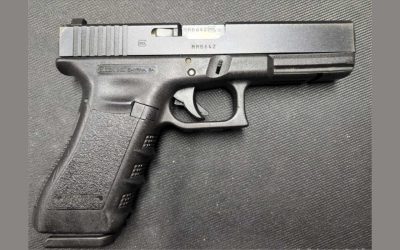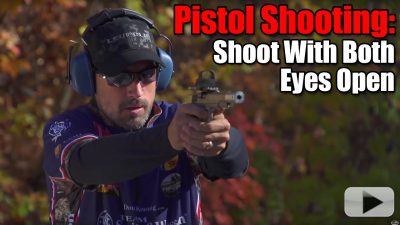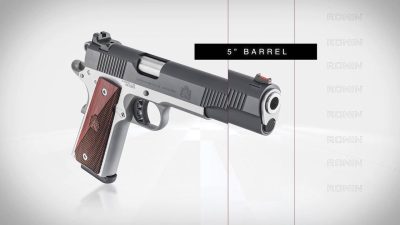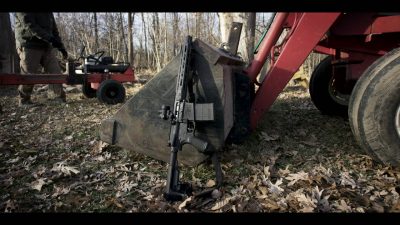4 Common Pistol Shooting Grip & Stance Mistakes (And How to Avoid Them)
As gun owners we strive to master the craft of shooting. What starts out as recreational plinking usually evolves into bullseye shooting and sometimes crazy distances. Challenges are offered and trash talk ensues and targets are moved further back and timers are broken out of range bags. While rifles afford us a measure of inherent accuracy, handguns are a cruel taskmaster. They have a shorter sight radius, a usually stiff trigger and they are fairly light. Mastering the handgun can be a challenge but not an impossible one. Many of the mistakes people make are common and easy to fix. Let’s take a look at four common mistakes and get them fixed.
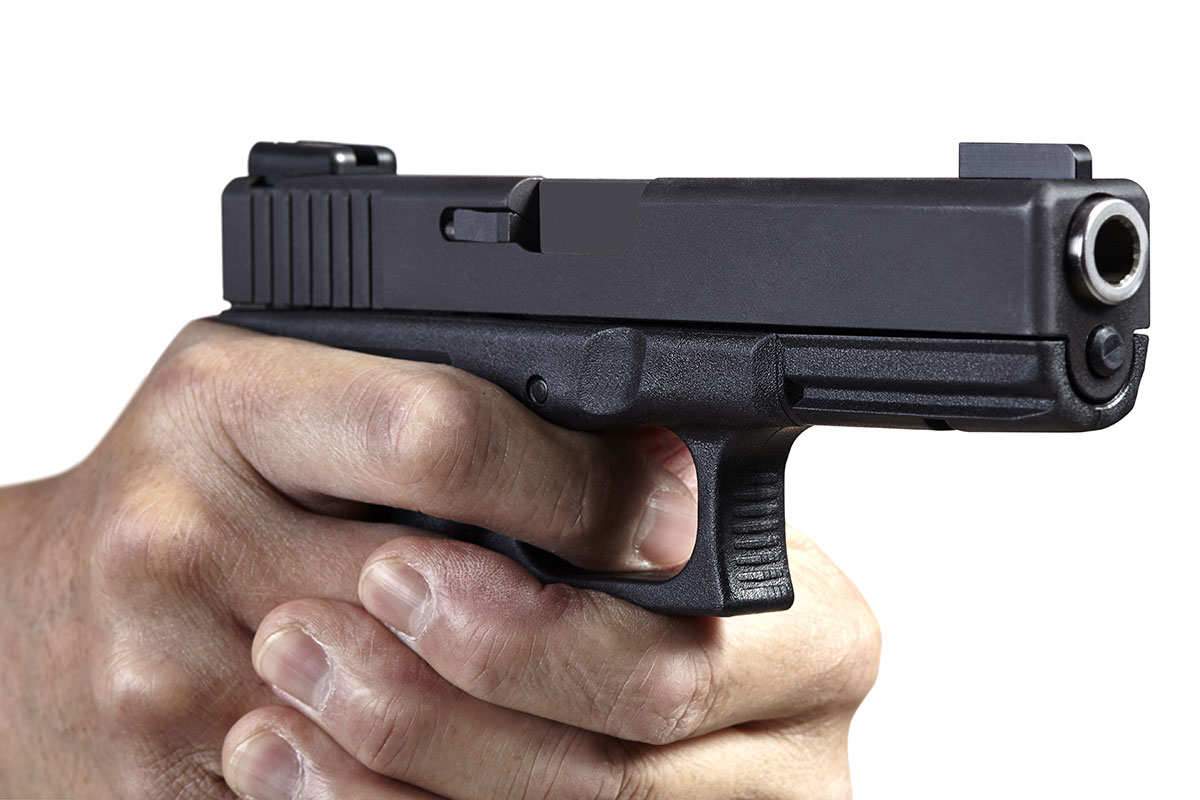
To make life easier, let’s break them up into two categories – Grip and stance. Of course we could break this down even further, but this will serve our needs quite well for now. Gripping the gun correctly is critical not only for accuracy, but for follow up shots and overall handgun control. An inability to manage recoil will at best affect your accuracy and at worst serve you up a face full of gun. One mistake I see a lot is a “tea cup” grip. This is very popular in movies and is cringe worthy to seasoned shooters. The Tea Cup occurs when the butt or magazine of the gun is seated into the palm of the support side hand. It is as if the gun is resting in the palm like, you guessed it, a cup of tea. The problem with this is that you are essentially shooting with one hand at this point as the support side hand does little more than act as a place to rest the gun. The fix for this is a correct grip. The best grip will have the barrel in line with the bones in your forearm to begin with. The web of your primary hand should be high on the back of the gun and fully under the back strap. Your thumb should be pointing down the slide. The support side hand will have equally as firm a grip. Your fingers will wrap over the top of your first hand and your thumb will be pointed down the slide as well. The thumb from your strong side hand will now rest on top of the muscle of your support side hand. This “thumbs forward” grip allows the large muscle of your thumb to settle up against the gun. This in turn will create a full 360° grip with no weak spots or openings. This is the key to not only accurate shooting, but to fast follow up shots as well. Some guns are easier to grip than others. It really all comes down to size.
Another grip issue many face is called “limp wristing”. This occurs when the gun is not held firm enough and it moves dramatically during shooting. In semi-automatic guns this can cause multiple malfunctions because the guns work under recoil. Excessive motion interrupts the complete cycle can the gun stops going all the way through its motion. This is most easily seen in shooters that have a huge muzzle flip while they are shooting. The answer to this challenge is to maintain a firm yet not death grip on the gun. Make sure you are lined up correctly behind the gun and provide sufficient. As the gun fires, hold your ground and let the gun cycle completely. This combined with an improper grip are two of the most common problems we see on the range with new and even experienced shooters.
Next up we need to look at stance. While it is hard to justify the need to adopt any one stance, there are better options than others. The first stance issue we see is called the “tactical turtle”. This occurs when the shooters extend both arms out into a locked position and raise their shoulders high. Their shoulders in many cases end up almost touching their ears and the head is craned forward. The problem with this is that it is a locked position. In order to continue shooting on the move, the entire stance needs to be disassembled and the shooter starts over. It also increases fatigue on the shooter as the position becomes more and more physically taxing. The solution is to use a “fighting stance”. This is the same stance you would take if someone pushed you to the point where you were going to have to fight them. Your support side foot is forward and you strong side foot is back about shoulder width. You are bladed slightly away from the target. You will extend your arms forward with gun in hand. You should be extended but not completely locked out. Your shoulders should be engaged, but not wrapped up around your ears. Lean just slightly forward onto the balls of your feet and get ready to fight. This is a strong position and one you can fire accurate shots from. GLOCKs are lightweight guns and in turn are easy to manipulate in any stance. I have seen brand new shooters train all day with little or no fatigue. While it may seem to be inconsequential, it is a major factor in determining how enjoyable a gun is to shoot. That in turn leads to more training and ultimately improved accuracy.
The second most common stance issue is lightheartedly called Kung Fu. This occurs when the shooter begins the shooting process and then (usually unintentionally) they either do a half squat or even take a half step forward before they shoot. This complicates and already complicated set of variables. The result is inconsistent and slow shooting because the shooter cannot replicate the motion exactly each time. The fix is simple and is something your mom probably told you as a child. Stand still. We want to minimize the amount of unnecessary motion we have to deal with during our draw and subsequent shooting. The only thing that should be moving is your hands and arms. Keeping everything else still simplifies the motion and allows us to be not only faster, but dramatically more accurate.
As I mentioned earlier, there are indeed other points that can be a challenge to our accuracy. These four however and variations of these points are by far the most common problems on the range. By making sure you have a solid grip and a good fighting stance you can easily produce good sized groups while shooting at speed. Once you get passed these ballistic roadblocks, you can self-diagnose other smaller issues. Using a video camera to check yourself is a great tool. With time you will be crushing the bullseye and showing off for friends.
